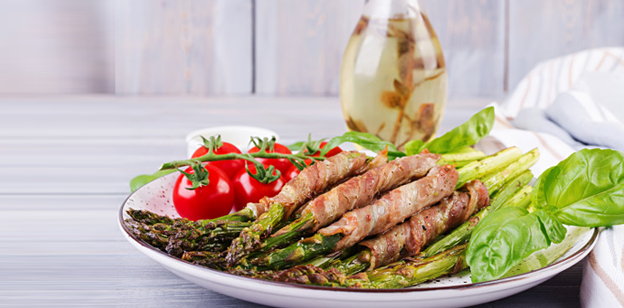
DOES THE PALEO DIET HELP WITH AUTOIMMUNE DISEASES?
Autoimmunity is an inflammatory response of the immune system against its own healthy cells and tissues. Autoimmunity is present in every individual and it is quite common and usually harmless. However, autoimmunity can also cause a broad range of human illnesses known collectively as autoimmune diseases, when the benign autoimmunity turns into pathogenic autoimmunity. While many factors can trigger autoimmunity, the type of food we eat is prone to cause an inflammatory response or the autoimmune condition. One can heal from the autoimmune condition by making changes in their diet and lifestyle. The best diet for the autoimmune condition is the one that reduces the immune response that comes from eating foods that a person is allergic/sensitive to or those that contribute to leaky gut. The Paleo Autoimmune Protocol is a powerful strategy that uses diet and lifestyle to regulate the immune system, putting an end to inflammatory responses and allowing the body to heal.
Here are the ways paleo diet can help heal autoimmune diseases
- Encourages eating natural foods needed for better health.All the readily available natural foods help the body and brain work in harmony and encourage the healthy functioning of the immune system. Whereas highly processed foods can cause dysfunction and lead to inflammatory responses.
- Includes protein as the main component of the diet and decreases carbohydrates. This ratio of protein to carbohydrates promotes vitality and vigor.
- Lowers the chance of inflammation by eliminating food allergens: Paleo diet eliminates all hyper allergic foods that may flare up inflammatory responses. For people with arthritis, food allergies or sensitivities, restricting gluten, nuts, additives, dairy, artificial preservatives, or refined carbohydrates can create a noted health advantage.
- Promotes lower carbohydrate intake and lower glycemic foods. When on a paleo diet, you eat carbohydrates with a lowerglycemic index. So, carbohydrates with less glycemic scale are digested and absorbed more slowly, so they do not spike your blood sugar levels.
- Supports high fiber intake: Eating fiber-rich foods is crucial for good health. Adding more fresh fruits, and non-starchy vegetables are excellent options to increase fiber as they promote gut health and reduce inflammation.
- You get the opportunity to eat more healthy fats.On a paleo diet, you are encouraged and allowed to consume more monounsaturated and polyunsaturated fats with balanced Omega-3 and Omega-6 fats that offer a cardiovascular benefit. Grass-fed beef and wild-caught salmon are an excellent source of healthy fats.
- Helps maintain dietary alkaline load that can balance dietary acid. The human digestive system produces a lot of acidic digestive juices. So, when we have a diet rich in alkaline load, it offers a range of health benefits such as lower blood pressure, a decreased risk for kidney stones, and stronger bones and muscles.
- Helps maintain gut health: Paleo diet is a gut-friendly diet. The inclusion of high fiber-rich foods promotes healthy gut microbiota and proper functioning of the immune system.
Conclusion:
Just like any other diet, paleo is not a one-size-fits-all diet. It is just a label given to a dietary style that can be tailored to your individual needs, goals, body type, and sensitivities. While this diet is not as widely studied as other types of diet, there are enough studies to suggest that a paleo-type diet is worth trying and can be a good starting point for anyone looking to improve their health and wellbeing.
